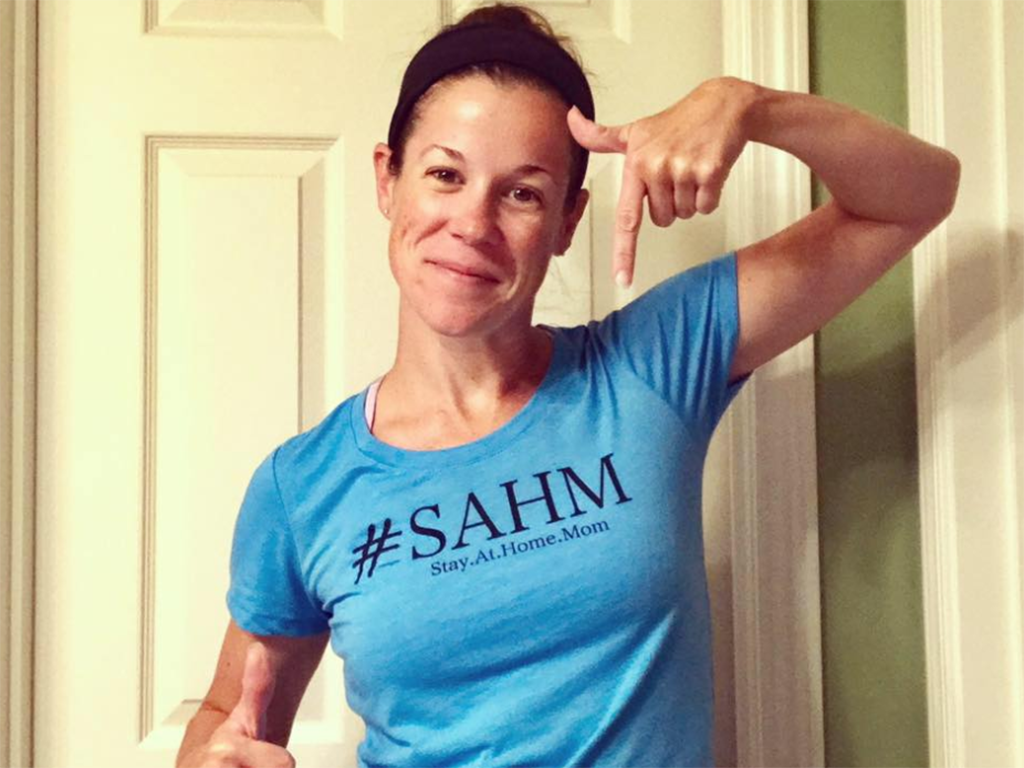Karen Johnson is fed up. The stay-at-home mom, writer and blogger wrote an honest Facebook post about mom-shaming that has received over 680,000 likes and more than 430,000 shares since Wednesday.

Fronted by a picture of Johnson holding up a bag of Popsicles, which she describes as the “cheap kind that are 50 for $2.00,” her post details the different approaches that all moms take in raising their kids and concludes that, regardless of their tactics, they’re all good moms.
WATCH BELOW: ‘Mommy shaming’ is real, experts say

“I thought this was something that we all needed to hear,” Johnson said to Global News. “We already beat ourselves up and then to have people make us feel bad on top of that, it’s just not OK. I wanted to get up and say sometimes I give my kids Popsicles and they’re fine.”
In her post, Johnson contrasts different approaches to parenting and points out that they’re all good choices.
“I have a friend who gave birth in a pool in her living room. I pushed mine out in a hospital bed after receiving a gift from the epidural fairy. Both of us are good moms,” she wrote. “I drink a beer or glass of wine (sometimes in front of my kids!) on occasion. I’m a good mom. My neighbour and good friend doesn’t drink. Also a good mom.”

Get breaking National news
Her everything-goes attitude about parenting and motherhood was, mostly, very warmly received by readers.
“Truth in every word and I’m tickled you had the guts to put it out there. Seems to me like you’re a wonderful mother,” one user said.
“My house has random freezee pop wrappers all over the place. My kids clearly do not know where the garbage is….I’m still a good mom,” commented another.
Some people took this as an opportunity to point out that not all mothers are good mothers, while others seemed not to get the point and used it as ammunition to judge Johnson’s choices.
READ MORE: Mother of adopted child responds to claims that she’s not a ‘real mom’
“Maybe you should clean your house instead of exercising. I think it’s more important to have a clean and sanitized home for the health of your family,” one person commented.
Where does this mom-shaming come from?
Dr. Jillian Roberts, a child psychologist and associate professor of educational psychology at the University of Victoria, says it comes from two places: one good and one malicious.
“People love children and they want the best for them, and it’s their preoccupation with the well-being of children that is the genesis of why they go to a judgy place,” she says to Global News.
However, the flip side to that is sometimes people just want to make themselves feel better about their choices. And the best way to feel superior is to make someone else feel inferior.
“By criticizing someone else, we stack higher on the scale in comparison,” she says.
Before offering unsolicited advice (or criticism) to a parent, Roberts says to think twice.
“First of all, you probably should never say anything, but if you must, ask yourself what the purpose of your comment is: are you aiming to be helpful or is your goal to make this person feel bad?”
Roberts uses the same example she employs when trying to teach kids the difference between tattling and reporting. A tattle (or a criticism) is done out of spite and has no useful outcome, while reporting (or commenting) with have a helpful result.
“If you see a mom doing something like letting her kid play on the beach without sunscreen, are you going to approach her and offer her some lotion for her child — because maybe she just forgot to do it — or are you just looking to make her feel bad about it?”
For people on the receiving end of the shaming, Roberts says to use the “hamburger strategy,” which involves sandwiching a hard reply between two layers of appreciation.
READ MORE: Mom claims she was forced to breastfeed standing up; calls out commuters in viral post
Her approach is to start with something nice like, “I understand that you’re concerned about my child’s eating habits,” then follow-up with a back-off kind of reply: “but I have it under control.” End on another positive note: “I appreciate your offer to help, though.”
If all else fails, she says to distance yourself from the person and don’t reply.
At the end of the day, Johnson’s message is a universal one, regardless of what your parenting style may be.
“People get stuck on this idea that you’re doing something wrong because you’re doing it differently from them,” she says. “I wish we could get past that. We’re all working so hard to do a good job.”








Comments